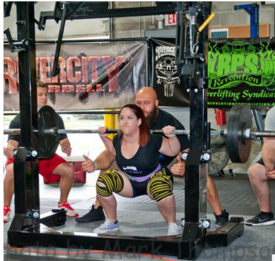Slowing Down to Get Faster - question

JTick
Posts: 2,131 Member
I understand that slow builds speed. Easy, slow miles, and lots of them. I'm still a newbie runner...have only been running seriously for about a year. I don't incorporate speed workouts or anything like that yet, just slow miles trying to build my base.
Question:
I don't own a Garmin yet, so the best pace feedback I have is periodic updates from Runkeeper. In the last 6 months, my easy miles have gone from 13:00 to sub 12:00. I want to keep them slow...I know I shouldn't run fast all the time. But, I've dropped about 20 lbs during that time, and I feel that the effort I'm putting forth is the same, or even a little bit easier as I'm in better shape than I was 6 months ago.
Is it okay to pace off of effort? Or do I just need to slow down more? I did 3.3 miles today at 11:59/mile, and the whole time I was breathing evenly and could hold a conversation if I needed to. But I don't want to push too fast and just wind up creating a mess, either.
Question:
I don't own a Garmin yet, so the best pace feedback I have is periodic updates from Runkeeper. In the last 6 months, my easy miles have gone from 13:00 to sub 12:00. I want to keep them slow...I know I shouldn't run fast all the time. But, I've dropped about 20 lbs during that time, and I feel that the effort I'm putting forth is the same, or even a little bit easier as I'm in better shape than I was 6 months ago.
Is it okay to pace off of effort? Or do I just need to slow down more? I did 3.3 miles today at 11:59/mile, and the whole time I was breathing evenly and could hold a conversation if I needed to. But I don't want to push too fast and just wind up creating a mess, either.
0
Replies
-
To me, if you can hold the conversational pace, then that's it. Your easy pace will become easier, so as long as you're not forcing it, then enjoy. Use this time to tweak your cadence. Sometimes my easy pace is low 8, sometimes it's mid 9. Just depends on how I'm feeling that day. I try not to be locked in a certain number, but I can tell when I'm feeling good vs when I'm fatigued by where my easy pace lies.0
-
SonicDeathMonkey80 wrote: »To me, if you can hold the conversational pace, then that's it. Your easy pace will become easier, so as long as you're not forcing it, then enjoy. Use this time to tweak your cadence. Sometimes my easy pace is low 8, sometimes it's mid 9. Just depends on how I'm feeling that day. I try not to be locked in a certain number, but I can tell when I'm feeling good vs when I'm fatigued by where my easy pace lies.
QFT.0 -
Easy isn't necessarily slow. It's effort. I use a sports watch all the time but don't really look at it for pace. I just like the data after the fact. What feels easy to me can fluctuate dramatically so I don't force the issue and go by perceived effort. I've found this especially important to do as my volume has increased. I still do my various forms of speed work but easy runs I keep just that, easy.0
-
Thanks all - I had a feeling it was more about perceived effort than slowing down 15 seconds. It makes sense that the more weight I lose and the fitter I become, the faster I can go without actually trying to.0
-
I'm working "hard" at the whole running "easy" thing myself. My long run training pace (8:45) was about equal to my first/only HM pace (8:41) In preparing for HM #2, I'm trying to slow down my long runs to a 9:30 pace. Still trying to calibrate my perceived effort meter. I always thought 8:45 was fairly "easy" but it wasn't easy when I hit about mile 11 in the half marathon. :-) I'm trying to run slowly while keeping cadence up. Picture a saint bernard with a chihuahua's gait. I check time/progress every 1/2 mile, and often have to slow down or I'll end up back at my old familiar 8:45. My point being, perceived effort is fine but I'm finding hard and fast targets helpful in actually achieving a slower pace.0
-
I do almost all my weekday runs in the morning before going to work and right now that means running well before the sun comes up. I have a GPS watch and while it's easy to look at it when it's light outside, it's not so easy in the dark so I'm learning to pace myself by 'perceived effort'. I have to wait until I'm back home to go back and check my splits to see how fast I was running at points during my run.
0 -
rabblerabble wrote: »I do almost all my weekday runs in the morning before going to work and right now that means running well before the sun comes up. I have a GPS watch and while it's easy to look at it when it's light outside, it's not so easy in the dark so I'm learning to pace myself by 'perceived effort'. I have to wait until I'm back home to go back and check my splits to see how fast I was running at points during my run.
You should have a headlamp or flashlight with you for safety anyway and then you'd be able to see the screen.
Also some watches have a backlight, my Forerunner 410 does
0 -
The most popular modern training method could be described as "80/20" training where 80% of your mileage is done at paces that are about 90 second slower than race pace. The rest of the mileage can be labeled "speed work" in that they include training at an increased pace, consisting of some combination of runs near to, at, and above lactate threshold.
This approach has been used for about half a century you can find a variety of training plans that use this approach.
In as much as that's how "everyone" trains, what is interesting is that there are other approaches that are significantly different and those folks who have designed such training plans have actual data to back up their claims.
If you decide to get more involved with running than doing a few "health runs" per week (I'm trying to find the right description here) // if you become an "enthusiast", you might investigate the "Run Less, Run Faster" approach to training. Google's your friend there but you can buy the book of that name or you can find a PDF that contains the concepts behind the plan.
Another resource that runs counter to the traditional thinking is "Running Science" by Owen Anderson, Ph. D. I'm in the process of reading it again and he makes a strong argument, citing studies, for few miles and higher tempo.
Again, these might be of interest if you get the running bug.0 -
Another resource that runs counter to the traditional thinking is "Running Science" by Owen Anderson, Ph. D. I'm in the process of reading it again and he makes a strong argument, citing studies, for few miles and higher tempo.
Again, these might be of interest if you get the running bug.
Both thank you and damn you for putting that title out there! I've lost a good few hours last night and today reading through it. He's not exactly against 'high' mileage from what I've read, just not mega high mileage. Definitely a big believer in the tempo work.
0 -
Other resources Joe Friels blog on heart rate training. His recent post has citations and studies on polarized training (~80% high volume, low effort training, ~20% at high intensity and virtually none in the middle zone where most of us seem to train). Since taking a three week break after my last marathon in early November and attempting to get back into training mode through the holidays and some illness, I have been following a plan that generally fits this pattern put forward by Matt Fitzgerald.
There is a standard test that I run periodically that is provided by my Digifit app called the CP30 (Critical Power 30 minute) Test. With a heart rate monitor, a measure of your current resting heart rate, and your other basic data, the app along with the monitor and GPS data helps establish heart rate training zones, lactic acid threshold heart rate, VO2 max and a few other metrics. The idea is to run as fast a you can at a constant sustained pace for 30 minutes. It is a very intense test.
My first attempt at it after running for a couple of months, had me run only 2.77 miles according to the GPS. My max heart rate was 179 bpm and it averaged 164 bpm over the entire 30 minutes.
Once I made my initial gains in cardio performance as I was training for my first marathon, my heart rate zones and the lactic acid threshold pretty much stabilized. And although I made some good progress increasing speed at the half and full marathon distance, I got to a point where running this 30-minute test produced very consistent results...you might say a performance plateau for this test (nearly identical distances for this time trial).
After all this long, slow running over the past 5-6 weeks with one really intense workout per week (Thursdays with hill repeats and now short interval repeats), I felt I was getting slower and more sluggish.
Yesterday, I ran this standard test and ran further and faster than I've ever run this test before. The distance was 3.72 miles with a max heart rate of 187 bpm and average of 174 bpm (nearly identical heart rates to the previous tests run throughout 2014). So what gave this increase in speed? Was it the rest break? Is it the long slow running with the once per week intense workout? Maybe yes to both.
But it was a surprise to me as my pace was 21 seconds per mile faster than my previous last two tests, Now, will that translate to the longer distances? We'll see shortly.0 -
:-) I'm glad that you found it helpful!Another resource that runs counter to the traditional thinking is "Running Science" by Owen Anderson, Ph. D. I'm in the process of reading it again and he makes a strong argument, citing studies, for few miles and higher tempo.
Again, these might be of interest if you get the running bug.
Both thank you and damn you for putting that title out there! I've lost a good few hours last night and today reading through it. He's not exactly against 'high' mileage from what I've read, just not mega high mileage. Definitely a big believer in the tempo work.
0 -
I have recently taken to using this: http://runsmartproject.com/calculator/. I have generally kept to it in regards to when I am on a treadmill or doing speed work. But I am a run by feel runner, as your "easy pace" can vary day by day.0
-
Thanks for posting that. Very handy.SchweddyGirl wrote: »I have recently taken to using this: http://runsmartproject.com/calculator/. I have generally kept to it in regards to when I am on a treadmill or doing speed work. But I am a run by feel runner, as your "easy pace" can vary day by day.
0
This discussion has been closed.








